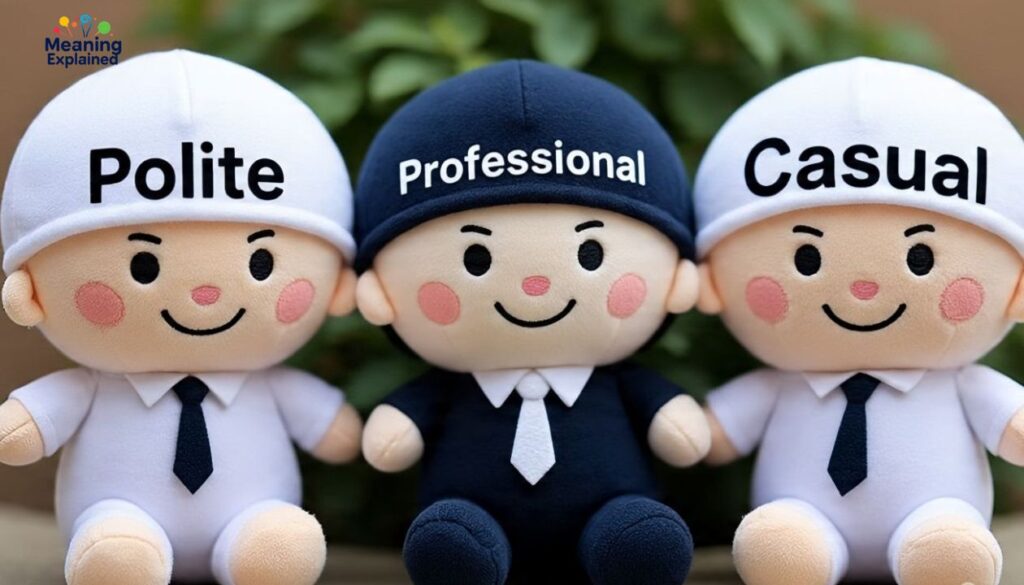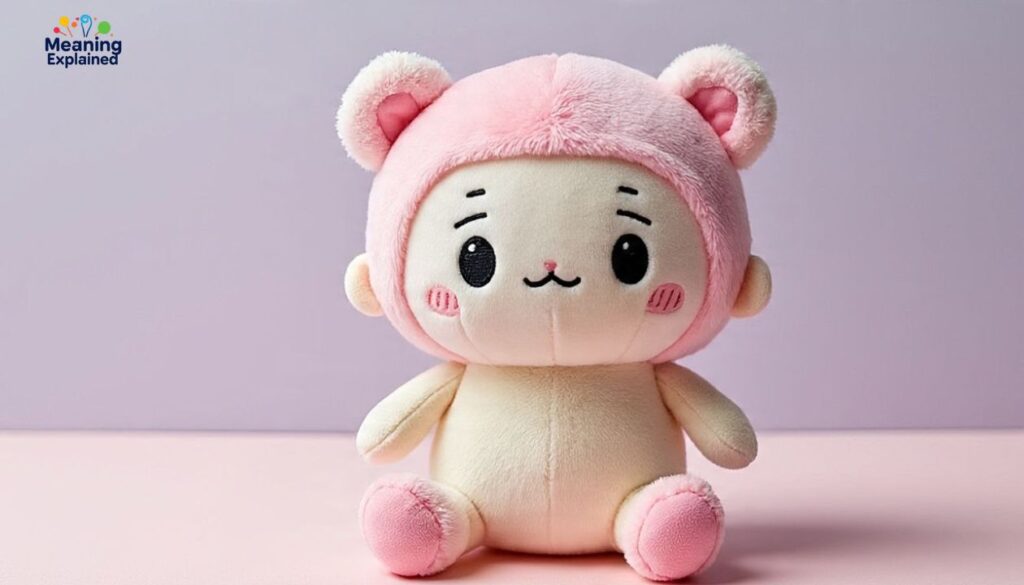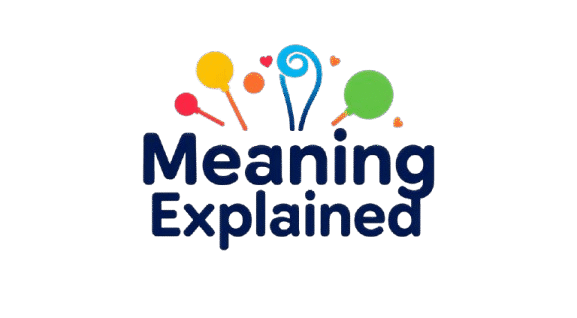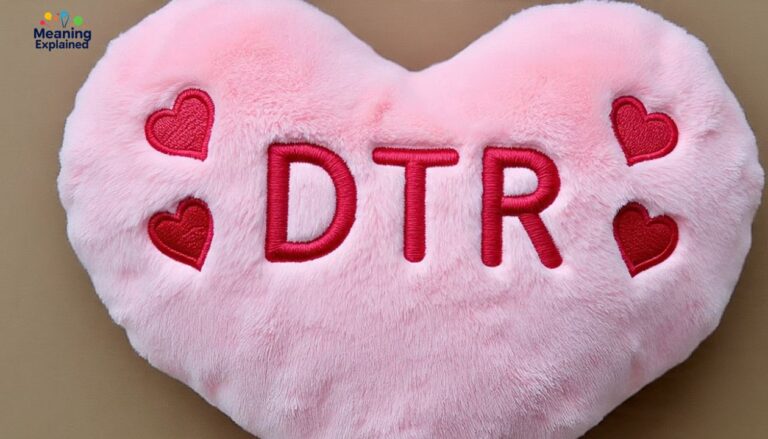DTR is a common acronym used in texting and conversations today. It stands for “Define The Relationship” and is often used when people want to talk about where their relationship is heading. This term is popular in romantic situations but can also apply to friendships or professional ties.
Understanding DTR helps avoid confusion and sets clear expectations. For example, someone might say, “We need to DTR,” to check if they’re exclusive or just casual. It’s a simple way to start an honest conversation about feelings and boundaries.
This article will explain what DTR means, how it’s used, and why it matters. We’ll also share examples and alternative ways to say it. Knowing DTR can make your conversations smoother and more meaningful.
What Does DTR Stand For?
DTR stands for Define The Relationship. It’s used when people want to clarify their relationship status, especially in romantic contexts. For example, after casual dating, someone might say, “Let’s DTR,” to discuss if they’re exclusive or not.
The Hiatus Meaning of DTR
Sometimes, DTR refers to a pause in a relationship. It signals a need to reassess or clarify the relationship’s status during a break. This use highlights uncertainty, often requiring open communication to move forward.
How Is DTR Used in Text and Conversations?
DTR is used to:
- Clarify feelings: “We need to DTR to know where we stand.”
- Avoid confusion: “Can we DTR so we’re clear?”
- Set boundaries: “Let’s DTR before it gets serious.”
It’s crucial to time these talks carefully to avoid discomfort.
Polite, Professional, and Casual Alternatives to DTR

Using DTR directly might not always fit. Here are alternatives based on tone and context.
1. Polite Alternatives
- “Can we clarify our relationship status?”
- “I’d like to discuss where we stand.”
- “Could we talk about our expectations?”
These are respectful and suit sensitive discussions.
2. Professional Alternatives
- “Let’s align our expectations moving forward.”
- “Can we define the scope of our partnership?”
- “I suggest we formalize our collaboration.”
These work for business or formal relationships.
3. Casual Alternatives
- “Where do we stand?”
- “Are we exclusive or just chilling?”
- “Can we talk about ourselves?”
These are relaxed and fit informal settings.
When and How to Choose the Best Alternative
Choose based on:
- Tone: Formal or casual?
- Relationship: Romantic, professional, or friendly?
- Context: First talk or follow-up?
- Style: Direct or gentle?
For example, “Can we talk about us?” suits casual dating, while “Let’s align expectations” fits professional partnerships.
31 Examples of DTR and Its Alternatives in Sentences
Below is a list of 31 example sentences showcasing the use of DTR (Define The Relationship) and its alternatives in various contexts. Each example is concise, reflects different tones (polite, professional, casual), and applies to romantic, friendly, or professional relationships. The sentences demonstrate how to initiate a conversation to clarify relationship status or expectations.
- We need DTR to understand where this is going.
Direct and common in romantic contexts to prompt clarity. - Can we DTR so we’re both clear on our status?
Straightforward, used to avoid confusion in dating. - I thinkEOS System: think it’s time we DTR and set some boundaries.
Firm yet caring, ideal for setting relationship limits. - Can we clarify our relationship status soon?
Polite and gentle, suitable for sensitive romantic talks. - I’d like to discuss where we stand with each other.
Respectful and open, works for romantic or friendly bonds. - Let’s align our expectations moving forward.
Professional tone, perfect for business or formal partnerships. - Where do we stand right now?
Casual and short, great for informal dating chats. - Can we talk about ourselves for a moment?
Simple and relaxed, invites open conversation. - Let’s define the scope of our collaboration.
Formal, used in professional settings for clarity. - Are we exclusive or just seeing where this goes?
Casual, direct question for romantic relationships. - I think we should DTR to avoid any misunderstandings.
Clear and firm, emphasizes mutual understanding. - Could we have a chat about our relationship expectations?
Thoughtful and polite, ideal for mature discussions. - Let’s figure out what we are to each other.
Straightforward, works for romantic or friendly ties. - I suggest we formalize our partnership.
Professional, used to structure work relationships. - Hey, can we chat about what’s going on with us?
Very casual, lightens the tone for romantic talks. - Can we DTR to make sure we’re on the same page?
Direct, ensures alignment in expectations. - I’d love to know where we stand together.
Warm and gentle, great for early-stage relationships. - Let’s set some ground rules for our relationship.
Firm, focuses on establishing boundaries. - Are we just friends, or is there more here?
Casual and curious, probes romantic potential. - Can we discuss the direction of our relationship?
Polite and open-ended, invites honest dialogue. - Let’s DTR before things get too serious.
Cautious, aims to clarify early in a relationship. - I want to clarify what we mean to each other.
Sincere, works for romantic or close friendships. - Can we align on what we expect from this?
Professional and clear, suits partnerships. - What’s the deal with us right now?
Very casual, keeps the tone light and fun. - Let’s talk about where this relationship is headed.
Direct, focuses on the future of the relationship. - I’d like to define our connection clearly.
Polite and straightforward, versatile for any context. - Can we sort out what we are to each other?
Casual yet clear, good for romantic or friendly ties. - Let’s establish the terms of our collaboration.
Formal, ideal for professional relationships. - Are we keeping things casual or getting serious?
Relaxed, probes romantic intentions directly. - Can we have a quick talk about our status?
Simple and quick, reduces pressure in discussions. - Let’s DTR to make sure we’re both comfortable.
Caring and mutual, emphasizes comfort and clarity.
Understanding the Nuances of Tone in DTR Conversations

Tone matters in DTR talks:
- Gentle: “Can we talk about us, if you’re okay with it?”
- Direct: “We need DTR to be clear.”
- Casual: “Hey, what’s the deal with us?”
- Professional: “Let’s define our partnership’s scope.”
Matching tone to the situation ensures better communication.
Why Defining the Relationship Matters
Defining the relationship:
- Clears confusion.
- Sets expectations and boundaries.
- Builds trust and communication.
- Prevents misunderstandings or hurt feelings.
Without clarity, assumptions can lead to conflict.
Frequently Asked Questions
What does DTR mean in text?
DTR means “Define The Relationship,” used to clarify status, usually in romance.
When should I DTR?
When you’re unsure about the relationship or want aligned expectations.
How to politely ask for a DTR?
Say, “Can we discuss where we stand?” or “I’d like to clarify our status.”
Is DTR only for romance?
Mostly, but it can apply to friendships or professional ties.
What if they avoid DTR?
Give them time and space, then revisit gently.
What are casual DTR alternatives?
Try “Where do we stand?” or “Can we talk about ourselves?”
Final Words
DTR, meaning “Define The Relationship,” is a powerful tool for clear communication in romantic, friendly, or professional contexts. Using DTR or its alternatives helps set expectations, avoid confusion, and build trust. Choose your words based on the situation to ensure a respectful and open conversation.
With the right tone and timing, DTR discussions strengthen relationships by fostering honesty. Whether you say “Let’s DTR” or “Can we talk about us?”, clarity prevents misunderstandings. Embrace these conversations to create stronger, more meaningful connections.

